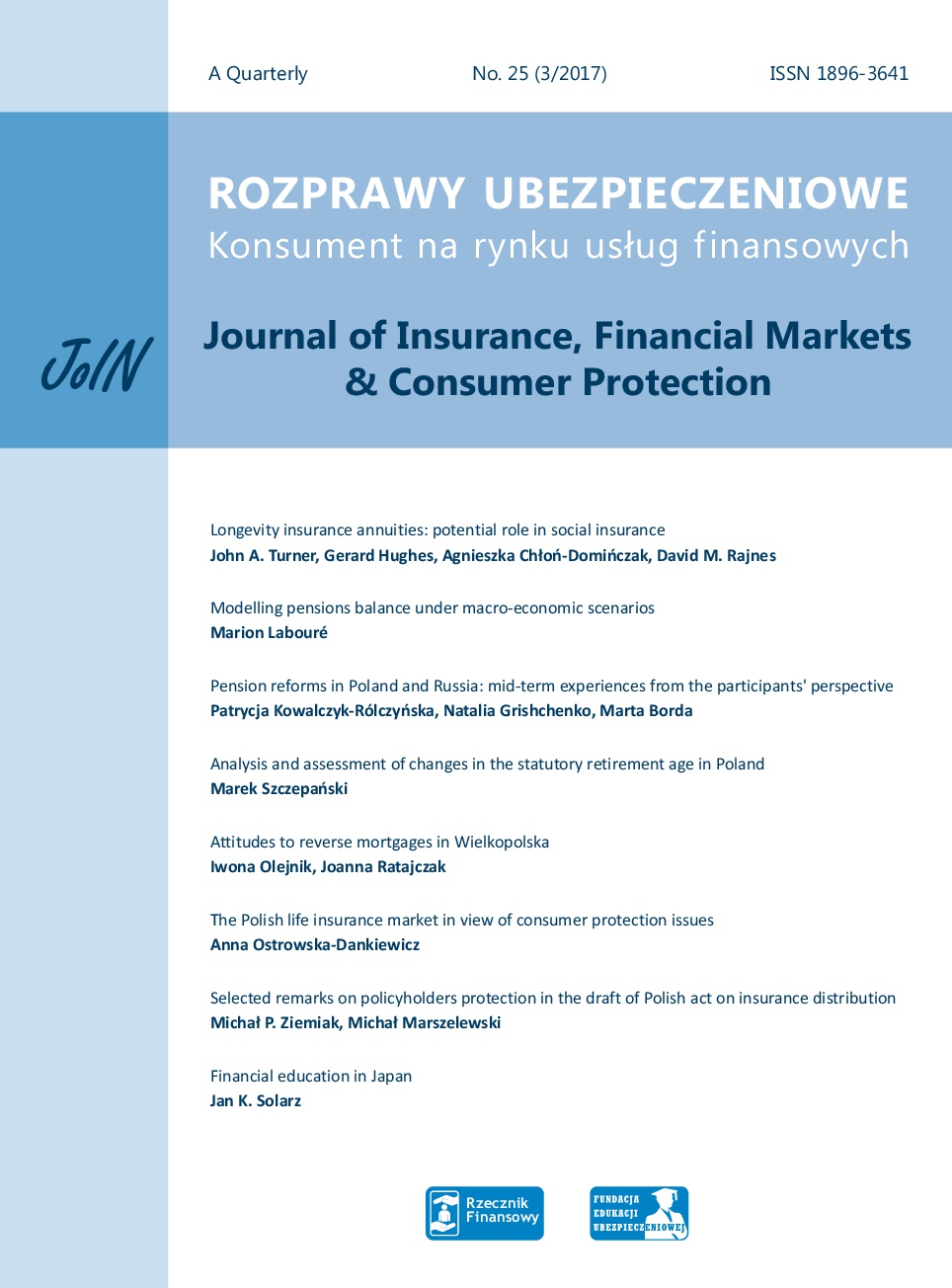Financial education in Japan
Financial education in Japan
Author(s): Jan Krzysztof SolarzSubject(s): Economy, Education, Demography and human biology, Present Times (2010 - today)
Published by: Rzecznik Finansowy / Fundacja Edukacji Ubezpieczeniowej
Keywords: life cycle; financial education; financial intermediation;
Summary/Abstract: Traditional financial education causes friction between its segmentation and integration. The new paradigm of financial education offers a complex synthesis of finances: going far beyond the tradition of financial planning. This study is a presentation of the financial education programme implemented in Japan in 2016. The analysis of the Japanese case confirms that financial habits contribute to the ageing of the population and generate deflationary expectations. The analysis of Japanese educational programmes confirms the theses on the population ageing and deflation. An early stage of life correlates with a segmentation of financial knowledge, while the mature and end-of-life stage correlates with financial risk management of everyday life. The performed analysis shows that in the foreseeable future, financial education will be dominated by the elements of a professional management of financial risk in everyday life, while segmentation of financial knowledge, typical of the early stages of life, will diminish. Financial education will overcome the conflict between segmentation and integration of financial competences by placing them in the human’s life cycle perspective.
Journal: Rozprawy Ubezpieczeniowe. Konsument na rynku usług finansowych
- Issue Year: 3/2017
- Issue No: 25
- Page Range: 117-127
- Page Count: 11
- Language: English

